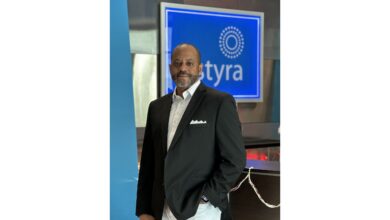arena drama reflects a familiar struggle • Virginia Mercury

A proposal to build an arena in Alexandria for two pro sports teams may not be dead, but it’s facing increasingly uncertain odds after Virginia legislators declined to add it to the two-year state budget they released right before the legislative session ended. The situation reflects Virginia’s perennial challenge of balancing developments to boost the state’s economic health against the will and needs of the people who live where the developments unfold.
Youngkin: legislature flouting ‘broad bipartisan support’ in excluding arena from state budget
The arena’s exclusion from the budget “befuddled” Gov. Glenn Youngkin, who has been the biggest advocate for the plan that he designed with the billionaire whose company owns the Washington Wizards and Capitals. In response to the legislature’s rejection of the arena project, which was to be partially funded by $2 billion in state bonds stemming from your tax dollars and mine, Youngkin said in a Thursday press conference he couldn’t understand why this “truly transformative” opportunity for Virginia to reap $12 billion in economic benefits wasn’t in the spending plan. He blamed the plan’s most vocal opponent, Sen. Louise Lucas, D-Portsmouth, without calling her name, for being the “single roadblock” to the plan’s progress.
It’s true Lucas has been loudly, proudly dead set against the arena project almost since its unveiling late last year. She hasn’t been shy to share her concerns that the “GlennDome,” as she and others on Twitter called it, would have negative implications for the state’s finances and credit rating. She pointed to other priorities that billions of taxpayer dollars could be spent on, like Hampton Roads toll relief and increasing public education funding. She’s not the only one of her political peers who were skeptical of the arena plan, but perhaps more importantly, many Alexandria residents also made it clear that they don’t want the arena in their backyard.
So let me see if I can add some clarity to relieve our governor’s confusion.
If a community says, “We don’t want this development here,” too often, local and state governments will dismiss or ignore their opposition in the almighty name of economic opportunity. If boards of supervisors, councils, mayors or governors believe a profit will be made by inviting a corporation to settle down someplace, the promise of profit frequently trumps the opinions of the people who live there.
Look at Wegmans in Hanover County’s Brown Grove. That community said repeatedly, and clearly, that they didn’t want a huge regional distribution center built in their tiny neighborhood. Yet they — Wegmans, incentivized by former Gov. Ralph Northam’s 2019 promise of $2.35 million in state dollars to build the facility and Hanover’s majority-Republican Board of Supervisors, who welcomed Wegmans with open arms and rezoned the area to make the project possible — forced it on them anyway.
Wegmans promised its $175 million distribution center would create 700 full-time jobs, and that seemed to satisfy Northam and local leaders, so much so that they tuned out the steadily louder chorus of residents’ protests and environmental justice concerns. The gargantuan center now hulks on nearly 2 million square feet in the middle of a historically Black community that has been the unwilling host of one industrial project site after the other. This kind of thing happens a lot in economically disadvantaged and Black communities inside and outside Virginia.
As a woman who grew up in Brown Grove told me last year, “We’re tired of hearing how much good this [facility] is going to do for everybody, how it’s going to bring new jobs and all of that. Nobody who’s saying that will have to live with this thing in their neighborhood, they won’t have to hear it or see it or deal with the extra traffic. They say it’s good for everybody but it’s bad for us. Nobody cares, though.”
Should possible benefits to many outweigh actual harm to a few?
There are many other examples of profits-over-people developments in communities statewide, often supported and enabled by local or state government, and the arena project would probably be one more on the list.
A petition by an opposition group of Alexandrians has over 3,000 signatures from folks who buck the prospect of the arena becoming their neighbor. They worry the arena will worsen traffic, raise taxes, put off noise pollution, decrease property values and disrupt their quality of life, among other concerns. Those worries are valid, and if I lived there, I probably would share some of them.
I’ve been following discussions about the arena project on social media. Some in the digital courts of public opinion don’t like that Virginia lawmakers weren’t consulted about the plan earlier in its development process. Others question why they and other Virginia residents should pay for a billionaire’s big idea, and whether the actual cost of the thing would end up being more than the projected total. Again, all of those are fair inquiries.
I’m not naive enough to believe that legislators’ decision to drop the arena deal like a hot potato is due only to their care for constituent concerns. Many are almost certainly using the issue as a political chess piece or for posturing purposes. Still, their blocking the arena also amplifies the voices, needs and desires of the commonwealth’s citizens, which is always a good thing.
When, and if, the arena proposal goes away for good, it will give Gov. Youngkin a chance to focus on priority issues that have emerged this session that, unlike the arena, impact people’s everyday lives — like raising the minimum wage, enhancing gun safety measures, making childcare more affordable and expanding access to reproductive health care. A majority of Virginians want a retail marijuana market, and it’s included in the state budget, yet the governor is as against it as Lucas is against the arena. It’s 2024, not the Prohibition era; maybe it would be wise to rethink his stance.
There’s still a chance Youngkin could send down a bill that brings the arena back to life and compels lawmakers to discuss it in a special session or he could add it as a budget amendment. But arena or no, Youngkin should review what matters most to his constituents and take action accordingly.
GET THE MORNING HEADLINES DELIVERED TO YOUR INBOX
























































